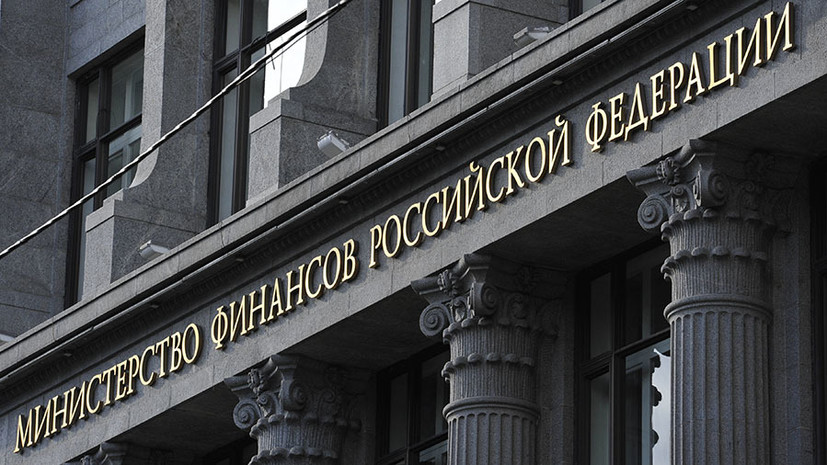The decline in inflation in Russia is ahead of official forecasts and the expectations of economists. According to Deputy Minister of Finance Vladimir Kolychev on Wednesday, November 13, consumer price growth by the end of 2019 could reach 3–3.5%. Moreover, according to the deputy minister, in March-April 2020, inflation will be in the range of 2.5-3%.
In addition, Vladimir Kolychev emphasized that the Russian budget policy is stable and does not carry significant inflationary risks.
“Regarding how much inflationary risks the budgetary policy entails. I think a little. If you look at this horizon for several months, quarters, and several years, then, in principle, our budget policy is quite stable, ”Kolycheva quotes TASS.
Kolychev also added that domestic investment from the National Wealth Fund (NWF) could amount to about 1 trillion rubles over several years, but they would not have a significant effect on inflation.
“Inflation is declining due to moderate consumer demand and a relatively stable ruble exchange rate. In general, we have a curious paradox: the decline in living standards keeps inflation at a low level, ”Vyacheslav Abramov, director of the BCS Broker sales office, said in an interview with RT.
In an interview with RT, Finam Group analyst Alexei Korenev added that this year, the traditional seasonal decline in inflation in late summer and early autumn, caused by falling vegetable prices, turned out to be more than expected due to a good harvest. However, the expert still did not rule out a slight acceleration in inflation by the end of the year.
“As a rule, at the very end of the year, inflation ceases to decline and begins to grow slightly, this is due to investing in large projects. The inflation rate can reach 3.5% or even 3.3%, but whether it can stay on it is a big question. I don’t exclude that in 2020 inflation will be in the range from 3.5% to 4%, but not less than 3%, ”Korenev believes.
However, RT analysts interviewed agree that a decrease in forecast inflation could be a signal for the Central Bank to continue easing its monetary policy through lowering the key rate.
“In part, when the Ministry of Economic Development or the Ministry of Finance speaks of low inflation forecasts, this serves as an indirect message for the Central Bank in the direction of lowering the key rate. Economic growth is now a government priority. In order to accelerate it, there should be a soft monetary policy, that is, low rates and more affordable loans. The key rate of the Central Bank, I think, may well decline to 5%. The experience of different countries shows that the key rate works more or less well when it is 1-1.5 percentage points higher than the expected level of inflation, ”said Alexander Abramov, head of the laboratory of the Institute for Applied Economic Research at RANEPA.
Alexei Korenev also believes that the situation with inflation is pushing the Central Bank to lower rates.
“This is useful for the economy, because the cost of borrowing for business and individuals is reduced, it accelerates the activity of entrepreneurs and accelerates consumer demand. If by the end of the year inflation will be stably below 4%, then the key rate of the Central Bank may decrease by 50 basis points. As for the next year, it all depends on the rate of inflation. Perhaps the Central Bank will not rush with a sharp decrease in rates. Most likely, next year we should expect two or three cycles of rate reduction, about 25 basis points. The rate may drop to 6%, it will not be surprising, but below 6% is already doubtful. To do this, the inflation rate should be below 3%, ”says Korenev.
Now the Central Bank's key rate is at 6.5%. In general, in 2019, the Russian regulator has already reduced the rate four times, the latter at a meeting on October 25.
The Central Bank emphasizes that it is precisely the level of inflation that now almost serves as the main guideline for changing the rate. According to an official statement by the Bank of Russia, consumer price growth in Russia is slowing faster than expected.
As a result, the regulator lowered its inflation forecast for 2019 from 4–4.5% to 3.2–3.7%. As expected by the Central Bank, in 2020 the figure will be about 3.5-4%, after which it will remain near the target mark of 4%.
“The slowdown in inflation is faster than predicted. Inflationary expectations continue to decline. The growth rate of the Russian economy remains restrained. The risks of a significant slowdown in the global economy remain, ”the Central Bank said in a press release published on the official website.
Vyacheslav Abramov emphasized that the current level of inflation already allows the Central Bank not to stop the rate reduction cycle, but drew attention to the world market.
“We need to monitor the situation on the foreign market, and given favorable conditions, the key rate of the Central Bank in the first quarter of 2020 may be at the level of 6%. However, I do not think that inflation will remain at today's level for a long time. Uncertainty in global markets may lead investors to avoid risks and weaken the Russian currency, which will affect inflation acceleration, ”the expert concluded.

